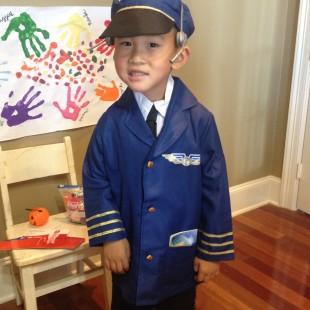Why do foreign adoptions cost so much?
Agency fees, the smallest component of the overall cost, cover the handling of the entire adoption procedure. This includes the processing of all required U.S. and foreign government documents by experienced adoption agents. Also included is the home study and post placement handling by a qualified social worker and post placement specialist. WIA is committed to holding agency costs to a minimum to make foreign adoption affordable for as many families as possible.
Other costs are beyond WIA’S control. Most foreign governments require a basic fee for adopting a child from their country. Added to this are foreign legal fees. Travel is expensive. Airline tickets alone range from $2,000 to $4,000 for you and your child, depending upon your destination and the time of year you travel.
Why must we pay for the entire adoption before we depart to pick up our child?
During the application and dossier processing and the home study procedure, WIA requires that you pay for services as they are rendered. After your adoption is approved, however, and before you go to pick up your child, all remaining fees must be paid. That is the only way WIA can maintain its financial integrity and continue to offer adoption at the lowest possible cost to our clients.
Do you work with families in other states?
Yes. If you live in Utah, the social worker at WIA will complete your home study. If you live in another state, your home study can be completed by any licensed home study a agency in your state of residence. It is then reviewed by the social worker at WIA, as required by Utah State law. WIA has placed children throughout the United States and has helped Military families living abroad adopt children.
Is it possible for single parents to adopt?
Yes. Single women are accepted by many of the countries we work with. In most cases single males are not accepted as adoptive parents by most countries. Of course, each country has its own particular restrictions on age, marital status and the number of children living in your home. As an agency we do not discriminate against anyone because of marital status and we will assist you in finding a country which is right for you.
Is travel required? Why can’t our child be brought to us?
The laws of the countries in which we work require parents to appear in the courts of their country. And some U.S. Embassies will not issue exit visas for the child unless parents travel to the foreign country. Several countries require two trips; the first to see the child and the second to bring the child back to the U.S. In a few countries escorts are available to bring children home and the second trip can be avoided. Parents who visit the foreign country have a unique opportunity to form a connection to their child and to his or her culture because of the experiences gained in traveling. Guatemala is the only exception and parents can ask for an escort and avoid traveling all together..
What will happen when I get there?
You will be met and fully escorted throughout your entire stay by one of WIA’s foreign agents. These people are fluent in English and you will find that you are in very competent hands. All arrangements will be made prior to your arrival in the country and most families find the process smooth and comfortable. You should be prepared for minor inconveniences which can happen on any trip such as late plane arrivals, jet lag, food orientation, etc. Major delays or problems are very rare.
Are the children healthy?
Whether you give birth to a child or adopt one, there is no guarantee of perfect health. Children in foreign orphanages may have medical conditions that have been partially diagnosed or are totally undiagnosed. Most countries provide detailed information on the child’s health, any known conditions and information on vaccinations. Children adopted internationally must be tested for AIDS and Hepatitis B. Also, children must be examined by a U.S. Embassy approved doctor for the issuance of a visa. Many medical conditions which are cannot be corrected in another country may be a minor correctable medical problem here in the U.S. WIA encourages families to have the medical reports and/or videos reviewed by medical adoption specialists here in the U.S. We will work with you and your physician to obtain answers to any questions or concerns you may have.
Can I be specific about the sex and age of a child I wish to adopt?
Yes, you can. Most foreign governments provide photos and videos with basic information about the adoptive children and will allow you to choose your child. Some countries, however, do not provide photos to choose from and will give you a child assignment along with a photo and medical records at the time of referral. After viewing the photo and medical records you can accept this referral or ask for another one.
Why does foreign adoption take so long?
The length of time involved in the foreign adoption process is due to the numerous requirements of not only the U. S. government but also a foreign government. Our experienced adoption specialists, here and abroad, are highly skilled in handling complicated negotiations and meeting all requirements in the most expedient manner to complete your adoption as quickly as possible.
Can I adopt more than one child and how does that affect the cost?
Many foreign governments allow parents to adopt more than one child at once. The foreign costs per child, however, usually double. Parents do realize some savings when adopting more than one child at a time, such as paying only once for traveling costs and agency fees that are only paid once.
Will my child be a U. S. citizen?
Because of the passage of the Child Citizenship Act on October, 2000, foreign adopted children will become U.S. citizens automatically upon their arrival in the U.S.
Why are children abandoned to the orphanages?
Most often the primary cause for abandonment and placing children for adoption is because of poor economic conditions. In some cases, such as China, the foreign government has set restrictions on number of children allowed due to the structure of their support system and cultural beliefs. In these cases, abandonment is viewed as necessary. Often the parents are very poor, fertility rates are high and birth control is not affordable or religious beliefs prevent it.
Why doesn’t the foreign government put forth more effort to help the adoption process along. Don’t they want their orphanage children to be adopted?
Most of these foreign governments do not want to give up their children. Many of the children in Eastern European orphanages are there because their families are struggling to survive, and about 70 percent of those children will be reunited with their families when their parents can financially care for them. It is sometimes an embarrassment to the foreign countries to open their orphanage doors to American scrutiny. Most citizens in these countries feel they care sufficiently for their children, and the sometimes criticize the U.S. system of foster care. Many of these foreign government cooperate in adoptions because of political pressure from the United States. Asian governments, however, are more willing to allow adoption of their children and in some ways are more cooperative.











